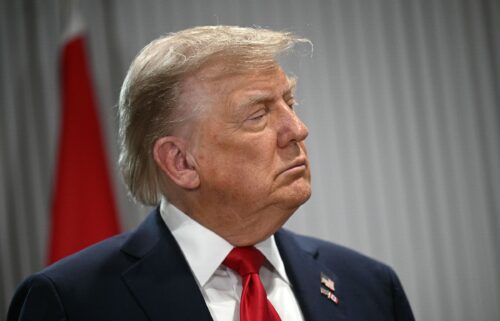Introduction In a move that has sparked intense debate across the political spectrum, former President Donald Trump signed an executive order aimed at ending federal funding for undocumented migrants. The executive order, which was issued as part of Trump’s broader immigration policy, seeks to restrict access to federal benefits and resources for individuals residing in the United States without legal status. While Trump and his supporters argue that the order is necessary to protect taxpayer dollars and enforce immigration laws, critics contend that it undermines human rights and places undue burdens on vulnerable populations.
Background and Context The issue of undocumented immigration has been a focal point of U.S. political discourse for decades. The Trump administration prioritized strict immigration policies, including the construction of a border wall, travel bans, and increased deportations. The executive order aligns with Trump’s long-standing stance that taxpayer funds should not be allocated to individuals who enter or remain in the country unlawfully.
Federal funds have historically supported various programs that provide healthcare, education, and social services to all residents, regardless of immigration status. Many cities and states with large immigrant populations have relied on these funds to ensure public health and safety. Trump’s order effectively cuts off this support, forcing local governments to reassess their budgets and policies.
Key Provisions of the Executive Order The executive order contains several major provisions:
- Restriction of Federal Grants: The order prohibits federal agencies from awarding grants to cities, states, and organizations that provide benefits to undocumented migrants.
- Enhanced Enforcement Measures: Federal agencies are directed to work with Immigration and Customs Enforcement (ICE) to identify jurisdictions that do not comply with immigration laws.
- Withholding of Social Services: Undocumented migrants are barred from accessing federally funded healthcare, housing assistance, and education grants.
- Support for States Enforcing Immigration Laws: States that actively cooperate with federal immigration enforcement may receive additional funding incentives.
- Legal Actions Against Sanctuary Cities: The executive order strengthens the federal government’s ability to sue sanctuary cities that defy federal immigration laws.
Reactions and Controversies The signing of the executive order has led to widespread reactions from politicians, advocacy groups, and the public.
- Supporters’ Perspective:
- Supporters argue that the order ensures that taxpayer money is used for legal residents and citizens, rather than individuals who have entered the country unlawfully.
- Many conservatives believe that limiting access to public resources will discourage illegal immigration and reduce the strain on public services.
- Some view the executive order as a necessary step toward enforcing U.S. immigration laws and preventing states from adopting policies that contradict federal mandates.
- Critics’ Perspective:
- Critics contend that the order is inhumane and disproportionately affects children, families, and essential workers who contribute to the economy.
- Many Democratic lawmakers and immigrant rights organizations argue that restricting federal funds punishes entire communities, not just undocumented migrants.
- Legal experts suggest that the order may face constitutional challenges, particularly in regard to states’ rights and federal overreach.
Potential Legal and Political Challenges The executive order is expected to face numerous legal battles. Civil rights organizations and Democratic-led states are likely to challenge the constitutionality of withholding federal funds from local governments that do not comply. The Supreme Court may ultimately be tasked with determining whether the order violates federal statutes or the principles of state autonomy.
Politically, the order further deepens the divide between Republicans and Democrats on immigration policy. While the Republican base largely supports stricter immigration enforcement, Democrats see the move as part of a broader attack on immigrant communities. The executive order is also likely to be a significant point of discussion in future elections, as immigration remains a key issue among voters.
Impact on States and Local Governments States and cities that provide resources to undocumented migrants face difficult choices. Many sanctuary cities, such as New York, Los Angeles, and Chicago, have already pledged to resist federal pressure, potentially risking the loss of millions in federal funding.
Governors and mayors must now navigate how to balance budget constraints with commitments to protecting immigrant communities. Some states may attempt to replace lost federal funds with state resources, while others may be forced to cut services or reconsider local immigration policies.
Economic and Social Implications The executive order’s economic impact is a subject of debate. Proponents argue that reducing federal expenditures on undocumented migrants will ease the financial burden on the government and taxpayers. However, studies indicate that undocumented migrants contribute billions to the U.S. economy through labor, taxes, and consumer spending.
The order could also have social consequences, including increased fear within immigrant communities. Many undocumented individuals may avoid seeking medical care, reporting crimes, or enrolling their children in school due to concerns about legal repercussions.
Conclusion Trump’s executive order cutting federal funds for undocumented migrants is a bold and controversial move that underscores the ongoing debate over immigration policy in the United States. While it aligns with the administration’s goals of strict immigration enforcement, it also raises significant legal, economic, and humanitarian concerns. As the policy unfolds, the nation will closely watch its effects on communities, legal battles, and the broader political landscape.



